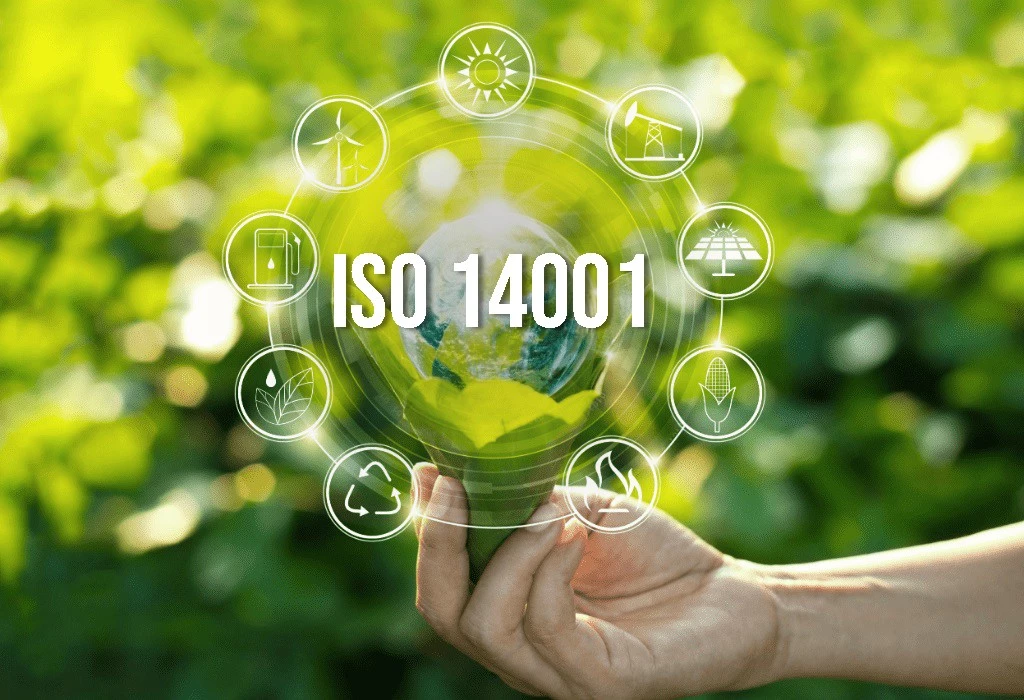
Welcome to the Green Scene, where we delve into the world of environmental excellence and sustainability practices. Today, we’re shining a spotlight on ISO 14001 certification, a gold standard for organizations committed to reducing their environmental impact.
This certification isn’t just a badge of honor; it’s a concrete demonstration of our dedication to responsible operations and environmentally friendly practices. ISO 14001 certification involves a rigorous process of assessment and implementation, requiring companies to meet strict criteria set by the International Organization for Standardization.
From reducing greenhouse gas emissions to minimizing waste generation, organizations that achieve this certification are leading the way in environmental stewardship.But what exactly does ISO 14001 certification entail? It encompasses a range of strategies and initiatives aimed at promoting sustainable practices and minimizing environmental harm.
We must establish clear objectives and targets for improving our environmental performance, engage with stakeholders on sustainability issues, and continually monitor and improve our environmental management systems.In a world where climate change and environmental degradation are growing concerns, ISO 14001 certification offers a roadmap for organizations to navigate these challenges and contribute to a more sustainable future.
So, whether you’re a business looking to enhance your environmental credentials or a consumer seeking out eco-friendly products and services, keep an eye out for the Green Scene ISO 14001: Environmental Excellence Certification. It’s not just a mark of quality; it’s a commitment to a greener, more sustainable world.
Why Pursue ISO 14001 Certification?
Implementing an environmental management system based on ISO 14001 guidelines helps organizations reduce their impact on the environment, improve efficiency, and enhance sustainability practices. Obtaining this certification shows a commitment to environmental stewardship and following regulations. ISO 14001 provides a structured approach for addressing environmental challenges, from setting goals to monitoring progress and making improvements.
Companies with ISO 14001 certification see cost savings, operational efficiencies, and improved reputation with eco-friendly customers. This proactive step contributes to creating a more sustainable future for businesses and the planet.
Key Steps to Implement Environmental Management Systems
Companies can improve resource efficiency, reduce waste, and enhance their environmental performance by adopting an EMS. Implementing an EMS involves analyzing activities, identifying environmental impacts, and developing strategies to mitigate them. This systematic approach helps businesses align with regulations, show commitment to sustainability, and gain a competitive edge. Environmental Management Systems offer a structured framework for continuous improvement in performance.
By monitoring objectives regularly, organizations can identify areas for improvement and take corrective actions. EMS also promotes environmental awareness among employees, encouraging sustainable practices. By integrating environmental considerations into operations, companies can reduce impact, drive innovation, optimize resources, and build a positive reputation.
Benefits of Achieving ISO 14001 Certification
This accreditation shows an organization’s commitment to sustainable practices and improving environmental performance. By meeting strict standards in the certification process, businesses prove their responsible management of the environment. Environmental Excellence Certification not only helps with environmental management but also brings real benefits. Companies that receive this recognition often save money by using resources more efficiently and managing waste better.
Additionally, such certification boosts corporate reputation and allows access to new opportunities and markets that value sustainability. Ultimately, achieving Environmental Excellence Certification positions organizations as environmental leaders and distinguishes them as ethical, forward-thinking entities dedicated to a greener future.
Common Challenges and How to Overcome Them
Environmental certification helps companies assess and improve their impact on the environment. It requires them to monitor their performance, follow regulations, and aim for sustainable practices. By participating in certification programs, companies can improve efficiency, reduce waste, and help the planet. Becoming certified shows businesses care about the environment and gives them a competitive advantage by meeting the demand for eco-friendly products and services.
Success Stories: Companies Making a Difference
Businesses can reduce their environmental impact by implementing practices like innovative technologies and efficient production processes. Prioritizing sustainability not only helps the planet but also boosts brand image, attracts eco-conscious customers, and drives long-term business success.
Implementing sustainable practices can also lead to cost savings in the long run as businesses become more efficient with their resources. By reducing waste and energy consumption, companies can lower their operating expenses and increase their profitability.
In addition to the financial benefits, adopting environmentally friendly practices can also enhance employee morale and engagement. Employees are often proud to work for a company that prioritizes sustainability and may be more motivated to contribute to the organization’s success.
Overall, incorporating sustainable practices into business operations not only benefits the environment but also has positive effects on brand reputation, financial performance, and employee satisfaction. By taking steps to reduce their environmental footprint, businesses can position themselves for long-term success in a rapidly changing market.
voicedrop.ai tagarticly.ai tag
Frequently Asked Questions
ISO 14001 is an internationally recognized standard that outlines the requirements for an effective environmental management system. It helps organizations improve their environmental performance, comply with regulations, and demonstrate commitment to sustainability.
Businesses can benefit from ISO 14001 certification by reducing their environmental impact, saving costs through improved resource efficiency, enhancing their reputation with stakeholders, and gaining a competitive advantage in the market.
To achieve ISO 14001 certification, a company must establish and maintain an environmental management system that conforms to the requirements of the standard, undergo an audit by a certification body, and demonstrate compliance with applicable environmental laws and regulations.
Last words
In conclusion, obtaining an ISO 14001 certification for environmental management is a prestigious achievement that demonstrates a company’s commitment to sustainability and proactive approach to reducing their environmental impact. This globally recognized standard not only enhances a company’s reputation but also helps them gain a competitive edge in the market.
By incorporating environmental management systems into their operations, organizations can streamline processes, improve resource efficiency, and contribute to a healthier planet for future generations. So, whether you’re a multinational corporation or a small business, investing in ISO 14001 certification is a wise decision that will not only benefit your bottom line but also help make the world a better place.
